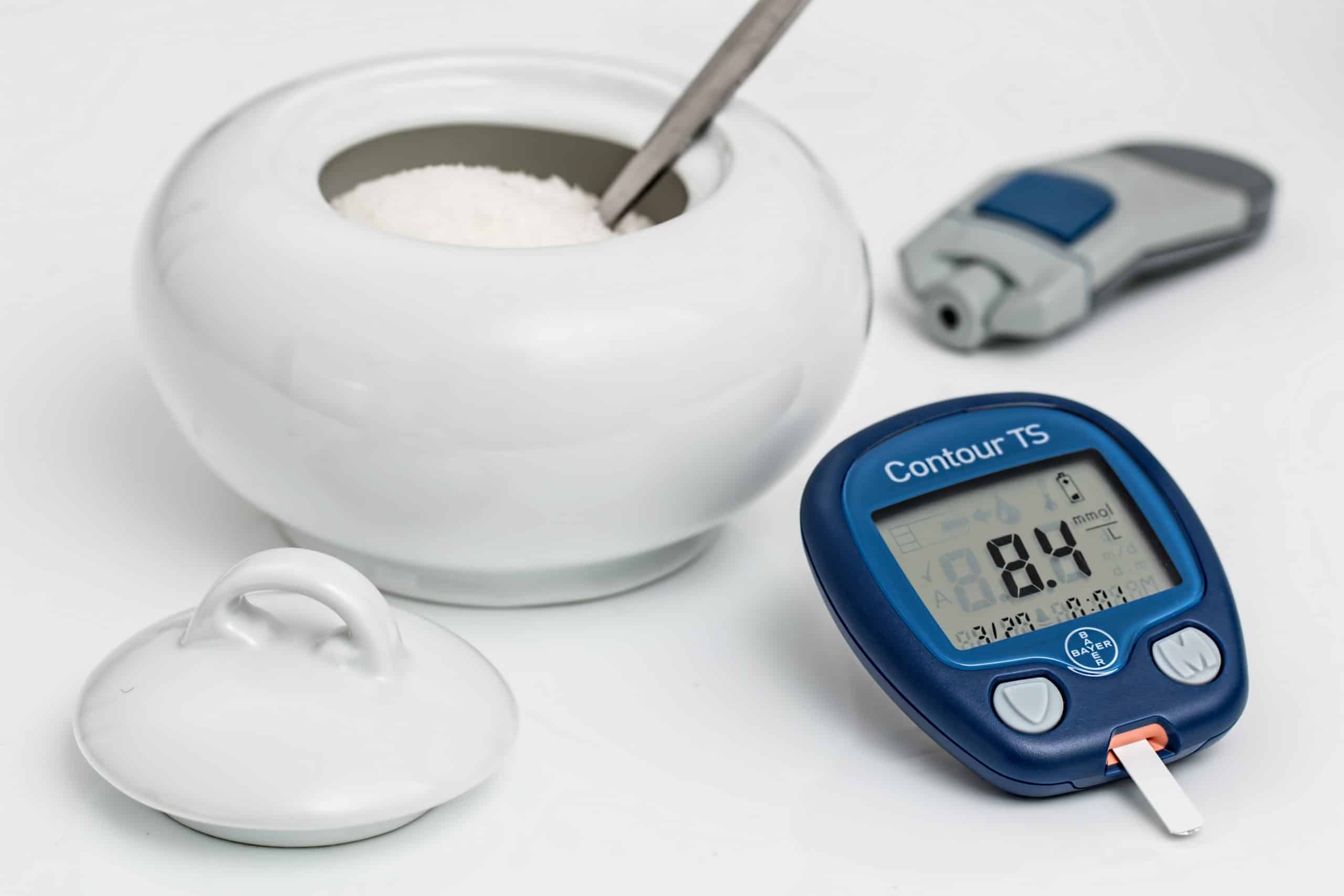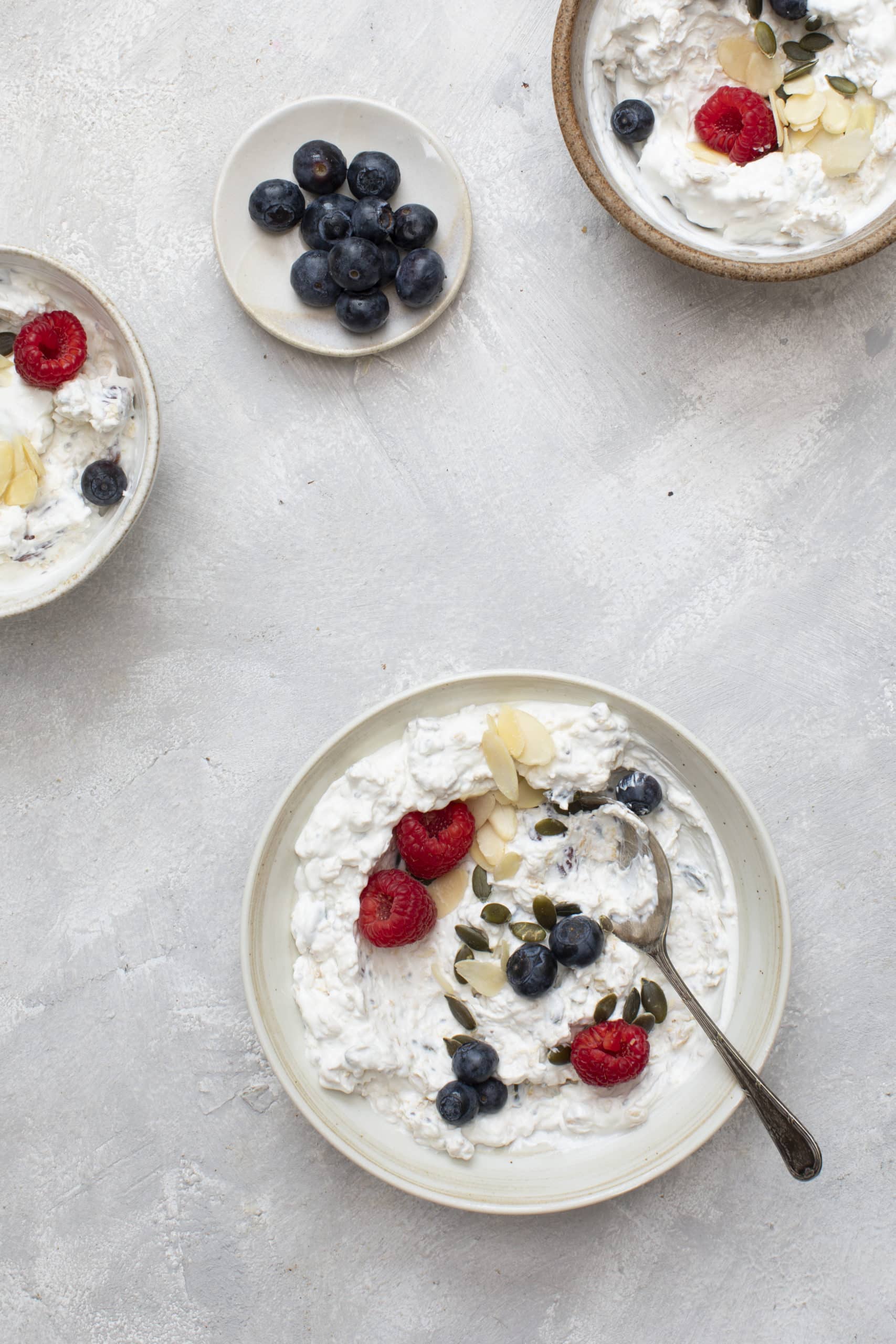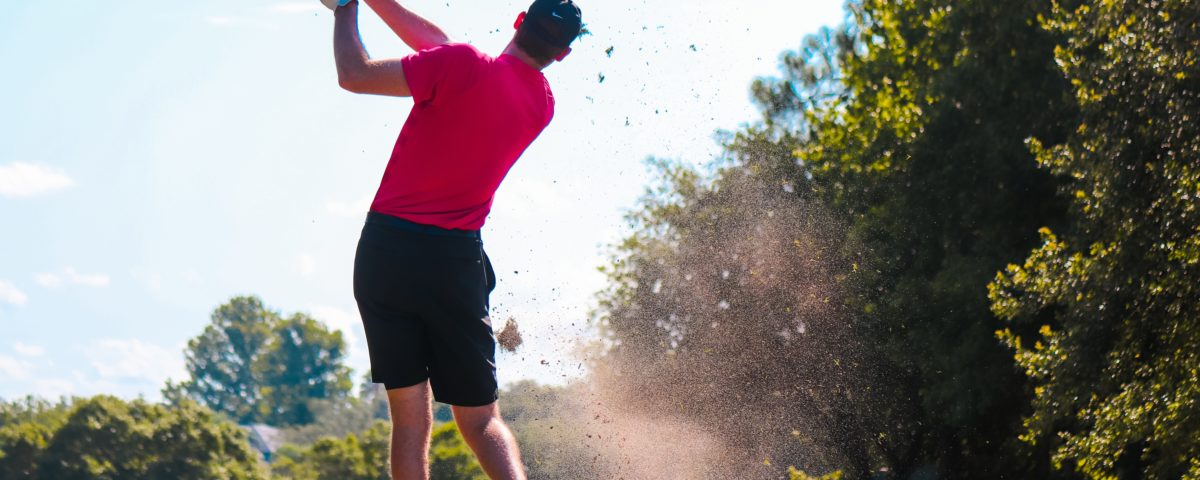Summary
- Nutrition for post workout recovery
- 3 recommended supplements for golfers
- Gaining a performance edge with tart juice and caffeine
We have covered the essential areas of nutrition for golf performance in Part 1 of the 2 part series on nutrition for golf. Now let’s go a little deeper into some common questions on recovery, early tee times, supplements and ways golfers can gain a competitive edge.
 What are your best nutritional tips for helping the golfer recover between rounds?
What are your best nutritional tips for helping the golfer recover between rounds?
The type of food, the amount of food and the timing of your recovery meal are the main considerations when it comes to rapid recovery after an intense round of golf. The primary focus is rehydration and replenishing depleted energy levels with a suitable slow digesting and balanced carbohydrate, protein and fat meal. In the first phase of recovery something like a fruit smoothie is a good option while a nutritious meal like meat, salmon, potato and roast vegetables is good for the second phase of recovery. That will help the body and mind to heal and regenerate after a long intense round.
What would you recommend for these golfers to buy the night before so they can have some breakfast at 05.30 am before their 07:00 a.m tee time?
 Early morning rounds are very common in big competition and it is critical to have a well-practiced strategy in place to meet your nutrition needs from when you step on the first tee box. Oats, nuts, seeds, yogurt and whey protein are all very easy to carry when travelling and can make up the basis of a nutritious breakfast or snack. All you need to buy on the road is fresh fruit and maybe some fresh milk which will make up a breakfast smoothie or an overnight protein oats. Hydration before an early round is also a vital area for consideration as you are more likely to begin the round dehydrated if you haven’t consumed sufficient fluids with breakfast.
Early morning rounds are very common in big competition and it is critical to have a well-practiced strategy in place to meet your nutrition needs from when you step on the first tee box. Oats, nuts, seeds, yogurt and whey protein are all very easy to carry when travelling and can make up the basis of a nutritious breakfast or snack. All you need to buy on the road is fresh fruit and maybe some fresh milk which will make up a breakfast smoothie or an overnight protein oats. Hydration before an early round is also a vital area for consideration as you are more likely to begin the round dehydrated if you haven’t consumed sufficient fluids with breakfast.

*Many golfers are currently deep in their strength and conditioning programs. What advice can you give to the golfers for post gym replenishment?
A simple rule of thumb is that when you train intensely you must recover optimally to get the most from each training session. Recovery is something that is regularly discussed by athletes, coaches and sports science support but cannot be underestimated as it is during the recovery phase that athletes adapt, grow and become stronger. This is particularly important for young athletes aiming to gain lean mass during a muscle growth phase (hypertrophy). Always have a recovery meal after your gym session that includes some carbohydrate and a good source of protein. A yogurt or whey protein shake with a banana is a beneficial first phase recovery meal option and a simple baked potato with beans and a chicken breast is a good option for second phase recovery.
 *If you had to choose 3 essential supplements that every golfer should take if they have optimised their nutrition, what would you recommend and why?
*If you had to choose 3 essential supplements that every golfer should take if they have optimised their nutrition, what would you recommend and why?

The 3 supplements I would advise are:
- Vitamin D during the winter months because there is significant evidence to suggest that people in the northern hemisphere are at risk of vitamin D deficiency during the winter months. You can read all about the importance of vitamin D.
- Electrolyte tablets to add to your water during a round for superior hydration and thus performance
- Although certainly not essential, whey protein is a supplement that is worth considering for golfers who are training in the gym and playing regularly. Protein is an important nutrient for recovery that is often neglected by athletes and maybe not considered by golfers because of the association of whey protein and team based or strength focused sports. It is also convenient and practical for making a snack when travelling as outlined above.
 *Golfers are always looking for the competitive edge. Is there anything that can enhance a golfers on course performance?
*Golfers are always looking for the competitive edge. Is there anything that can enhance a golfers on course performance?
Tart cherry juice is something that may be beneficial for golfers who want to improve the rate of the recovery after intense rounds or training. Not only is there evidence to suggest cherry juice can support the rate of recovery after exercise by helping to reduce inflammation but there is also suggested benefits for improvements in the onset of sleep and sleep quality. This could be particularly useful for golfers who are moving between time zones and struggle with getting adequate sleep in new environments. Remember, if you are going to take this that it is concentrated tart cherry juice rather than your typical cherry fruit juice!
 Caffeine is well known to have some performance benefits for other sports but many top golfers such as Tiger and Harrington try to avoid any caffeine during tournament weeks citing feeling of jumpiness over short game shots and putting. But others have no such issues. It’s an interesting topic. What is your views on this?
Caffeine is well known to have some performance benefits for other sports but many top golfers such as Tiger and Harrington try to avoid any caffeine during tournament weeks citing feeling of jumpiness over short game shots and putting. But others have no such issues. It’s an interesting topic. What is your views on this?
There is a significant body of evidence to show that caffeine can improve high intensity exercise performance through reducing the perception of fatigue and enhancing focus. However, even though caffeine can improve performance in high intensity exercise many athletes do not use it due to being over-stimulated to the point that they feel “jittery”. For golfers, like most athletes, the use of caffeine must be approached with caution as the benefits in perceived energy can easily be undermined by poor motor control or over stimulation. This can very easily lead to mistakes with your long game or particularly the short game where tempo is critical. It is only through use in practice rounds and warm-up tournaments that golfers can ascertain if caffeine is something that is beneficial for them. Some golfers may find it beneficial to have 1-2 coffees in the lead up to a round for better focus and to reduce the feelings of fatigue but practicing this strategy in non-competitive rounds cannot be over emphasised. It is worth adding that even if using caffeine in practice rounds is perceived to be beneficial, this may not work well in competition due to higher rates of stress hormones and adrenaline. For composed, experienced golfers or for those with a high caffeine tolerance, caffeine intake may offer a performance edge. However, when thinking of using any supplement, it is important to consider if the fundamentals in nutrition (which have the greatest potential impact) have being thoroughly considered and implemented.
 References
References
Hillyer, M., Menon, K., Singh, R., Hillyer, M. and Menon, K., 2015. The effects of dehydration on skill-based performance. Int J Sports Sci, 5(3), pp.99-107.
Stevenson, E.J., Hayes, P.R. and Allison, S.J., 2009. The effect of a carbohydrate–caffeine sports drink on simulated golf performance. Applied Physiology, Nutrition, and Metabolism, 34(4), pp.681-688.
American College of Sports Medicine (2009) American College of Sports Medicine position stand. Nutrition and athletic performance. Med Sci Sports Exerc.
41(3):709-31









